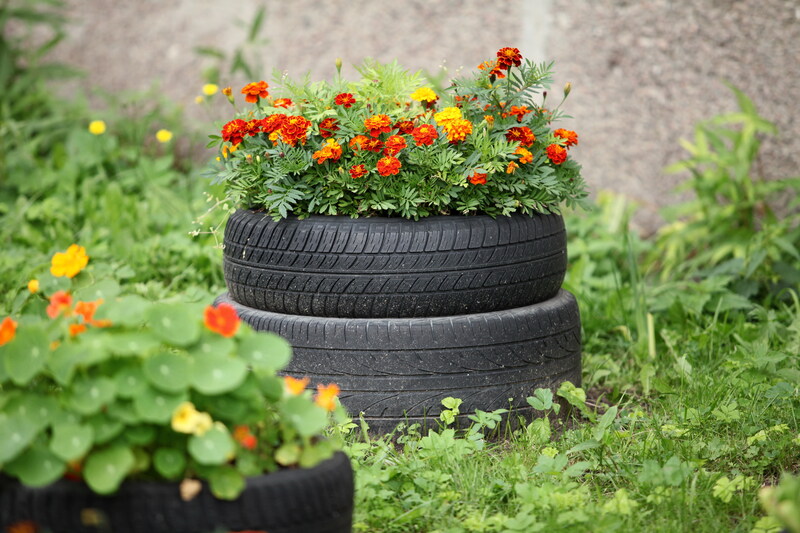Do Your Part by Disposing of PPE Waste Responsibly: A Comprehensive Guide
The global COVID-19 pandemic has underscored the vital importance of Personal Protective Equipment (PPE) for safeguarding individuals and communities. However, the widespread use of face masks, gloves, and other protective gear has resulted in an alarming accumulation of PPE waste in communities, cities, and natural environments. Doing your part by disposing of PPE waste responsibly is crucial--not just for health and safety, but also for protecting our planet. In this article, we'll explore why responsible PPE waste disposal matters, the potential dangers of improper disposal, and practical steps everyone can take to minimize harm.
Understanding PPE Waste and Its Environmental Impact
PPE waste encompasses all used personal protective equipment such as disposable masks, gloves, face shields, gowns, and shoe covers. The bulk of these items are made from plastics and synthetic fibers, designed for single use. While these materials serve a critical role in infection control, they pose significant risks when not disposed of correctly.
- Plastic Pollution: Most PPE items are made of materials like polypropylene and polyethylene, which take hundreds of years to degrade.
- Threats to Wildlife: Animals may ingest or become entangled in improperly disposed PPE, leading to injury or death.
- Microplastic Generation: Over time, discarded PPE breaks down into microplastics, contaminating soil and water systems.
- Clogged Sewers and Waterways: PPE can block drains and rivers, exacerbating flooding and harming aquatic ecosystems.

Why Is Responsible PPE Waste Disposal So Important?
Responsible PPE waste management ensures not only the safety of sanitation workers and the general public, but also the protection of the environment. By disposing of PPE waste properly, we can prevent the spread of infectious diseases and help avert a hidden environmental crisis.
Community Health and Safety
- PPE waste can carry infectious agents, putting waste handlers and the public at risk if not managed properly.
- Improper disposal can contaminate shared spaces, parks, and streets, increasing health risks for everyone--especially vulnerable populations.
Environmental Protection and Ecosystem Balance
- Proper PPE waste disposal minimizes the accumulation of plastics in terrestrial and aquatic habitats.
- By reducing litter, we help ensure the survival of birds, fish, and other wildlife that could otherwise suffer from ingestion or entanglement.
Best Practices for Disposing of PPE Waste Responsibly
To do your part in managing PPE waste responsibly, follow these essential steps. Individuals, families, and organizations must make responsible PPE disposal habits a daily routine.
Correct Disposal at Home
- Never litter used PPE--always place used masks, gloves, and other single-use items in a lined, sealed trash bin.
- Bag your waste. Double-bagging PPE waste can help contain potential contaminants and prevent accidental exposure during handling.
- Do not flush masks or gloves down toilets or drains. These can cause severe blockages and pollution issues.
- Wash hands thoroughly after handling and disposing of any used PPE.
Disposing PPE in Public Settings
- Look for PPE-specific disposal bins in hospitals, clinics, schools, shopping centers, and other public venues.
- If a PPE bin isn't available, securely seal your used PPE in a bag before placing it in the general waste bin.
- Encourage fellow community members and colleagues to follow the same practices.
Business and Institutional Responsibility
- Businesses should provide accessible, clearly labeled PPE waste bins for staff and customers.
- Train staff on the importance and methods of responsible PPE waste disposal.
- Partner with certified waste management companies for the regular and safe collection of PPE waste.
- Display educational materials to raise awareness about responsible PPE waste management in your workplace or school.
Innovative Solutions for PPE Waste Management
While the safest practice remains using and disposing of single-use PPE responsibly, several innovative initiatives are emerging worldwide to address the growing problem of PPE waste. Here are some noteworthy approaches:
- PPE Recycling Programs: A number of organizations have started collecting disposable face masks and gloves for recycling into plastic lumber, road building materials, and even new PPE items.
- Biodegradable PPE: Research and development efforts are underway to produce biodegradable masks and gloves that reduce environmental impact.
- Waste-2-Energy Solutions: Some facilities are converting non-recyclable PPE waste into energy through advanced incineration processes, reducing landfill burden.
While these solutions are promising, their effectiveness depends on correct usage and consistent public participation. Always check with your local waste management authority about available PPE recycling options in your area.
What Shouldn't You Do With Used PPE?
- Don't recycle PPE through conventional recycling streams; most municipal systems do not accept used medical or personal protection items because they pose contamination risks.
- Do not leave used PPE in shopping carts, at park benches, or on the ground. Not only is this unsanitary, but it also contributes to the global litter problem.
- Never incinerate PPE waste at home. Burning plastics can release toxic fumes, harming your health and the local environment.
Always follow official guidelines from your local health department and waste service providers to ensure you're doing your part in safe PPE disposal.
FAQs About Responsible PPE Waste Disposal
Can I Recycle My Disposable Mask or Gloves?
Disposable masks and gloves are typically made from mixed materials that cannot be recycled in regular home recycling bins. Specialized facilities may accept them, but unless you have access to such a program, always throw them away in the trash.
How Should I Dispose of PPE if I Am Sick or Caring for Someone Who Is?
If PPE has been used by someone who is sick (or by a caregiver), double-bag the items and let them sit unopened for 72 hours before placing in the general waste bin. This reduces the risk of virus transmission to sanitation workers.
Are There Biodegradable Alternatives to Conventional PPE?
Yes! Look for certified biodegradable or compostable PPE made from natural fibers. These products are designed to break down more readily and are preferable when available. However, ensure they offer the protection you need for your environment.
Can I Wash and Reuse Single-Use Masks or Gloves?
No. Single-use PPE is not intended for reuse. Washing or disinfecting them can compromise their protective qualities and increases the risk of accidental infection.
The Global Scale of PPE Waste: Why Your Actions Matter
The pandemic has led to the use of an estimated 129 billion face masks and 65 billion gloves every month globally (according to a study by Environmental Science & Technology). If even a fraction of these items are improperly discarded, the result is a colossal burden on our ecosystems.
- Beaches and urban landscapes worldwide have seen a surge in single-use mask and glove litter.
- Waste workers are at increased risk of exposure due to improper handling of contaminated PPE.
- Wildlife and marine life are increasingly ingesting or getting entangled in PPE waste.
- The climate impact is growing: The plastics in PPE require significant fossil fuels to produce and contribute to greenhouse gas emissions if incinerated improperly.
It's impossible for city services or environmental agencies to collect and manage all PPE litter without cooperation from the public. That's why your personal commitment to responsible PPE waste disposal makes a direct impact.

Do Your Part by Disposing of PPE Responsibly: Action Steps
- Always have a small, sealable bag with you for used masks and gloves while outside.
- Educate your family, friends, and colleagues on the dangers of PPE litter and how to dispose of it correctly.
- Advocate for better waste management facilities in your community--request more PPE disposal bins and clearer instructions.
- Support and use biodegradable PPE products whenever possible.
- Stay up-to-date with your local government's regulations and disposal facilities for hazardous and medical wastes.
PPE Waste and the Circular Economy: Looking Forward
Responsible PPE waste management is an essential part of building a more sustainable, circular economy. By treating waste as a resource--for example, turning recycled PPE into construction materials or energy--we can reduce the strain on our planet and protect public health. However, the foundational step is still proper separation and disposal by each individual.
Conclusion: A Small Act With a Big Impact
Doing your part by disposing of PPE waste responsibly is one of the simplest and most effective ways to protect your community and the environment. By following proper disposal procedures and encouraging others to do the same, you can help reduce disease transmission, minimize plastic pollution, and foster a culture of consideration and sustainability.
Every mask, glove, or gown that is disposed of properly is one less item polluting our landscapes and waterways. Small actions, multiplied by millions of people, create lasting change.
Let's all commit today: Dispose of PPE waste responsibly, and inspire others to do their part. Our planet--and future generations--depend on it.
```